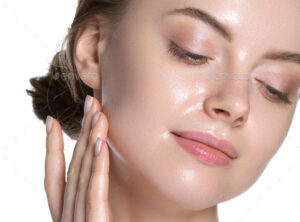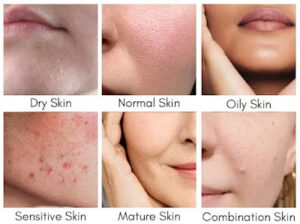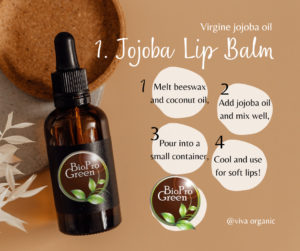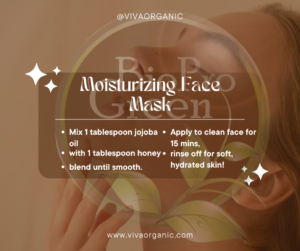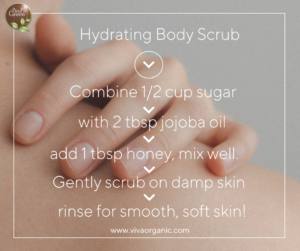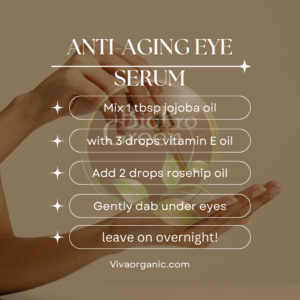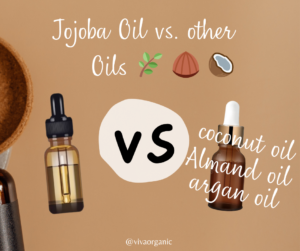Virgin Jojoba Oil
Jojoba is well know in the cosmetics field for it similarities with the of sebum and for it long lasting ability to retain it properties.
Table of contentes
- Introduction to Virgin Jojoba Oil
- H1: What is Virgin Jojoba Oil?
- Key Points: Origin, extraction process, and what makes it “virgin.”
- Top 5 Benefits of Virgin Jojoba Oil for Skin
- H1: Why Use Virgin Jojoba Oil for Skin?
- H2: Benefit 1: Moisturizes Without Clogging Pores
- H2: Benefit 2: Reduces Acne & Scarring
- H2: Benefit 3: Natural Sun Protection
- H2: Benefit 4: Anti-Inflammatory Properties
- H2: Benefit 5: Suitable for All Skin Types
- DIY Skincare Recipes Using Virgin Jojoba Oil
- H1: Easy DIY Recipes with Virgin Jojoba Oil
- H2: Moisturizing Face Mask
- H2: Hydrating Body Scrub
- H2: Anti-Aging Eye Serum
- Jojoba Oil vs Other Oils
- H1: How Does Jojoba Oil Compare to Other Oils?
- H2: Jojoba Oil vs Coconut Oil
- H2: Jojoba Oil vs Argan Oil
- H2: Jojoba Oil vs Almond Oil
Introduction to Virgin Jojoba Oil
What is Virgin Jojoba Oil?
Did You Know? 🌿 Jojoba Oil is a pure liquid gold found in the seeds of the Simmondsia chinensis plant! This unique shrub, often spotted in the warm deserts of southern Arizona, California, and northwestern Mexico, produces seeds rich with an extraordinary oil known for its impressive skin benefits.
Jojoba oil is incredibly special because it makes up around 50% of the seed’s weight! That’s a lot of nourishing goodness packed into each little seed. When extracted, this liquid becomes a naturally silky, lightweight oil that mimics our skin’s natural oils. This similarity allows jojoba oil to absorb beautifully into the skin, leaving it moisturized and balanced without feeling greasy.
What’s even cooler? The Simmondsia chinensis plant has adapted to survive in harsh desert climates, which is part of what makes its oil so resilient and beneficial. Next time you reach for jojoba oil, you’ll know you’re holding a natural wonder, carefully crafted by nature and packed with centuries of botanical wisdom.
What Makes Jojoba Oil “Virgin”?
Cold-Press Extraction 🌱
Virgin jojoba oil is extracted directly from the seeds of the jojoba plant through a process called cold pressing. This means no heat or chemicals are used, preserving the oil’s natural nutrients and antioxidants. Cold pressing is a gentler method that keeps the oil as close to its natural state as possible.Unrefined Purity 💧
Virgin jojoba oil is unrefined, meaning it hasn’t been treated, bleached, or deodorized. This retains its natural, earthy scent and golden color, both signs of its purity. Refined jojoba oils may be lighter or even colorless, but they lose some of their natural properties in the process.Rich in Natural Nutrients 🌟
Because virgin jojoba oil is minimally processed, it’s packed with essential fatty acids, vitamin E, and antioxidants. These components give virgin jojoba oil its power to hydrate, soothe, and protect the skin naturally.
Eco-Friendly and Sustainable 🌍
Often, virgin oils come from sustainable farms that prioritize organic growing practices, especially since virgin jojoba oil is valued by eco-conscious consumers. This focus on purity also supports a healthier, more natural product from start to finish.
Top 5 Benefits of Virgin Jojoba Oil for Skin
Benefit 1: Moisturizes Without Clogging Pores 💧
Virgin jojoba oil is renowned for its ability to deeply hydrate the skin while mimicking the natural oils produced by our bodies. This unique property means that it can moisturize effectively without clogging pores, making it a fantastic option for all skin types, including oily and acne-prone skin. Say goodbye to greasy products that weigh you down—jojoba oil keeps your skin feeling soft and supple without the heavy residue!
Benefit 2: Reduces Acne & Scarring 🛡️
If you struggle with acne, virgin jojoba oil could be your new best friend. Its non-comedogenic nature ensures that it won’t clog pores, helping to prevent breakouts. Moreover, it contains natural healing properties that aid in fading scars left behind by acne, promoting a clearer and more even skin tone over time. The oil helps regulate oil production, keeping skin balanced and blemish-free.
Benefit 3: Natural Sun Protection ☀️
While virgin jojoba oil is not a substitute for sunscreen, it does offer a small amount of natural sun protection—approximately SPF 4. This can provide a light layer of defense against harmful UV rays. Its antioxidant properties also help protect skin from sun damage and free radicals, promoting healthier, more resilient skin over time.
Benefit 4: Anti-Inflammatory Properties 🌼
Virgin jojoba oil is packed with anti-inflammatory compounds that can soothe and calm irritated skin. Whether you have sensitive skin, eczema, or rosacea, applying jojoba oil can help reduce redness and inflammation, leading to a more even and comfortable complexion. Its gentle nature makes it an ideal choice for anyone looking to pamper their skin without irritation.
Benefit 5: Suitable for All Skin Types 🌟
One of the most remarkable things about virgin jojoba oil is its versatility. It’s suitable for all skin types—dry, oily, combination, and even sensitive skin. Its lightweight texture and ability to absorb quickly mean that everyone can benefit from its nourishing properties. Whether you’re looking to hydrate dry patches or balance oily areas, jojoba oil is a perfect fit for your skincare routine.
DIY Skincare Recipes Using Virgin Jojoba Oil
Easy DIY Recipes with Virgin Jojoba Oil
Moisturizing Face Mask Recipe
Hydrating Body Scrub Recipe
Anti-Aging Eye Serum Recipe
Jojoba Oil vs Other Oils
1. Moisture Retention
- Jojoba Oil: Retains moisture without clogging pores, ideal for oily or sensitive skin.
- Coconut Oil: Known for locking in moisture but with a 4/5 comedogenic rating—often unsuitable for acne-prone skin
.
2. Shelf Life & Stability
- Jojoba Oil: Lasts up to 5 years thanks to its resistance to oxidation, making it a stable choice
- Coconut Oil: Typically has a 2-year shelf life; more prone to spoilage when exposed to high temperatures.
- 3. Composition
- Jojoba Oil: Contains about 82% unsaturated fatty acids—excellent for anti-aging and skin balance
.
- Coconut Oil: Around 50% lauric acid ; offers antimicrobial benefits, ideal for reducing bacteria on dry skin but too rich for oily skin types
.
- 4. Skin Compatibility
- Jojoba Oil: A non-comedogenic rating of 2/5, mimics natural sebum, and is beneficial for sensitive and combination skin types
.
- Coconut Oil: High comedogenicity, making it risky for acne-prone skin despite its moisturizing capabilities.
Jojoba Oil vs Argan Oil. 🌿
1. Fatty Acid Composition
- Jojoba Oil: Around 82% unsaturated fatty acids—mimics human sebum, balancing for all skin types
.
- Argan Oil: Contains 42-49% oleic acid and 29-36% linoleic acid, which is especially beneficial for dry or aging skin due to its deep hydration and barrier protection
.
2. Absorption and Texture
- Jojoba Oil: Lightweight, absorbs quickly, excellent for acne-prone and combination skin.
- Argan Oil: Richer in texture; slower to absorb but better for very dry or mature skin, helping improve skin elasticity and reduce wrinkles
.
3. Anti-Inflammatory & Antioxidant Properties
- Jojoba Oil: Contains natural vitamin E and B-complex, soothing inflamed skin and protecting against environmental stress
.
- Argan Oil: High in vitamin E and antioxidants; its anti-aging effects reduce fine lines and improve skin barrier function
.
Jojoba Oil vs. Almond Oil 🌰
1. Vitamin and Nutrient Profile
- Jojoba Oil: Rich in vitamin E and minerals; beneficial for hydration without heavy oils.
- Almond Oil: Contains vitamin E, vitamin A, and fatty acids, excellent for improving skin tone and elasticity, especially around the eyes
.
2. Comedogenic Rating
- Jojoba Oil: Low comedogenic rating (2/5), ideal for acne-prone and oily skin.
- Almond Oil: Slightly more comedogenic; generally safe but can clog pores for those with oily skin, better suited to dry or sensitive skin.
3. Skin-Type Compatibility
- Jojoba Oil: Universally compatible, ideal for balancing oily skin.
- Almond Oil: Calms and nourishes dry, sensitive, or irritated skin but may be heavy for those prone to acne


